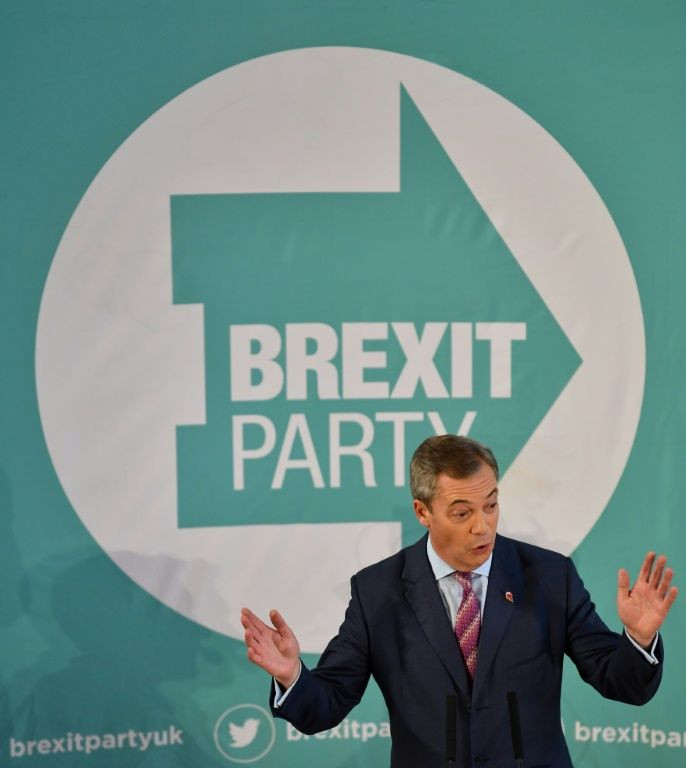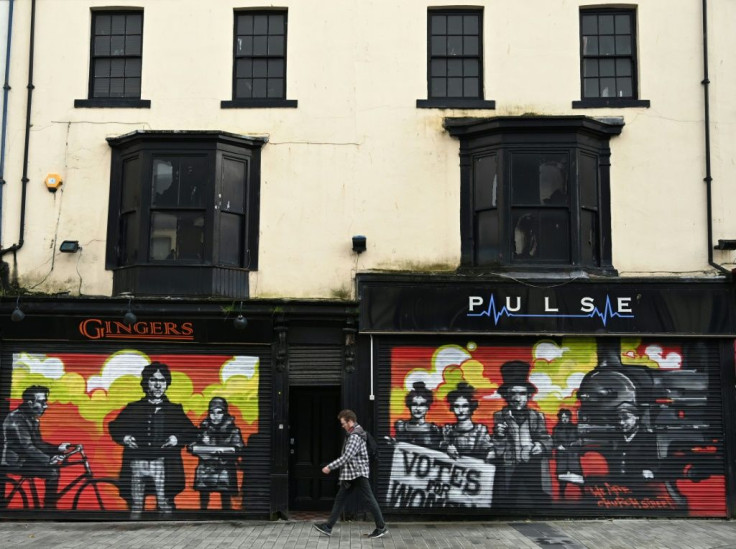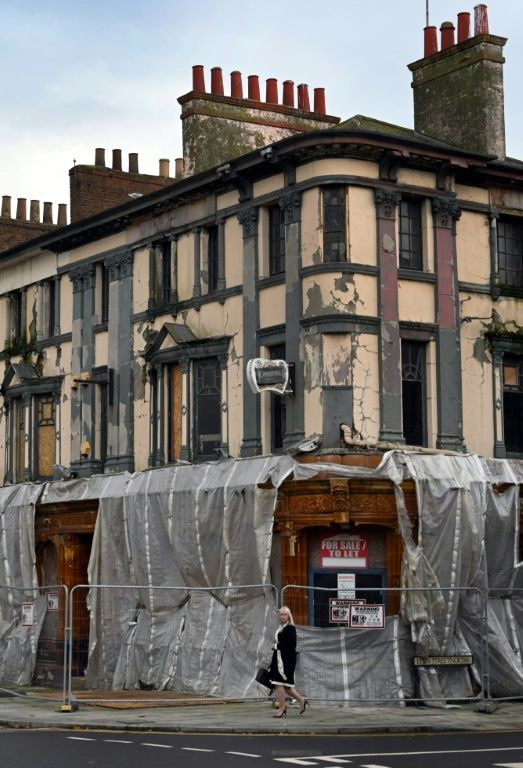A Brexit Threat In Labour's Heartlands?

In places like eurosceptic Hartlepool in northeast England, long-held party allegiances being reshaped by Brexit could trigger a political earthquake at next month's election.
The former shipbuilding and steel hub on Teesside, which voted by almost 70 percent to leave the European Union in the 2016 referendum, has been a traditional stronghold of the Labour Party.
But Britain's main opposition party could be hobbled by its nuanced stance on Brexit, which sees it favouring a second referendum after renegotiating a softer divorce deal with Brussels.
That's considered a betrayal by many of Labour's once-loyal voters -- and a problem the party could encounter across its Brexit-backing heartlands in northern England.
"Labour has done nothing for this town," said Pat Stamper, 81, a recent convert to the Brexit Party set up by populist eurosceptic Nigel Farage.
"I was Labour all my life, I was a union woman... But now, it's that," she said, pointing to a turquoise-coloured placard of the Brexit Party before predicting it would win big support locally.
Hartlepool is typical of the towns in north England, built on heavy industry but left behind by globalisation, which voted heavily in favour of exiting the EU.
Sitting on the windswept North Sea coast, unemployment is nudging double digits and poverty levels are higher than the national average.
On a Monday afternoon its main street was largely deserted, while many premises are vacant.
"We're like the forgotten place," said Derrick Nunn, a retiree who backed remaining in the EU and used to vote Conservative but is now unimpressed.
"When we were kids we were always brought up to be told you vote Labour. I won't be voting for any of them," he said.

"It's the most unpredictable that I've know it for a lot of years. People are that disillusioned about what's been going on."
While Britain's parliament has been wracked by division over Brexit, 225 miles (360 kilometres) north, Hartlepool has hardened its eurosceptic sentiment.
The Brexit Party now controls the local council -- its first in the country.
Farage brought his Brexit Party bandwagon to town on Monday to announce he would be standing down his candidates in Conservative-held seats nationwide.

He had threatened to field candidates everywhere but faced defections and growing criticism that he would split the eurosceptic vote and hand victory to pro-EU parties pushing for another referendum.
But his party still plans to contest hundreds of other constituencies, including "Leave"-supporting Labour seats like Hartlepool.
Labour incumbent Mike Hill looks increasingly vulnerable with Brexit now the dominant issue.
"My pledge to the voters of Hartlepool: I'm going to get a proper Brexit done, and I'm going to bring money and jobs," vowed Brexit Party chairman and local candidate Richard Tice.
He insisted the party stood a better chance of beating Labour than the Conservatives, who would "end up basically being a paper candidate".
But the ruling Conservatives -- resurgent under Prime Minister Boris Johnson since he took power in July -- had also scented an opportunity to win Hartlepool.
The Tories have been widely disliked across swathes of working-class northern England.
In the 1980s then premier Margaret Thatcher's government shut coal mines in the region, putting thousands out of work and devastating communities. Many have yet to recover.
Her successors in government believe Brexit could repair the Conservative brand, although Hartlepool is an ambitious target.
The Conservative Party has also yet to choose a candidate. Its favoured choice withdrew, saying he did not want to split the anti-EU vote.
Now with the Brexit Party heavily focused on the seat, winning could be an impossible task.
"As an ex-Labour supporter we can't vote (for the) Tories," said Stephen Little, 50, who admitted he even liked Johnson.
"Everybody's sick of Labour," he added. "My dad voted Labour, my grandad voted Labour and I voted Labour up to 2017. So many people round here are so let down on Brexit.
"(The) Brexit Party's come along and that's the one we'll be supporting," he said of his like-minded friends and family.
Still traditional tribal loyalties and getting enough young people and students to the polls could just be enough to help Labour hang on.
"I'm leaning more towards Labour," said Grace Davis, 20, a film student, who will be voting in her first election.
"I feel like younger people relate to their promises more than the other parties," she added.
jj/phz/boc
© Copyright AFP 2024. All rights reserved.




















